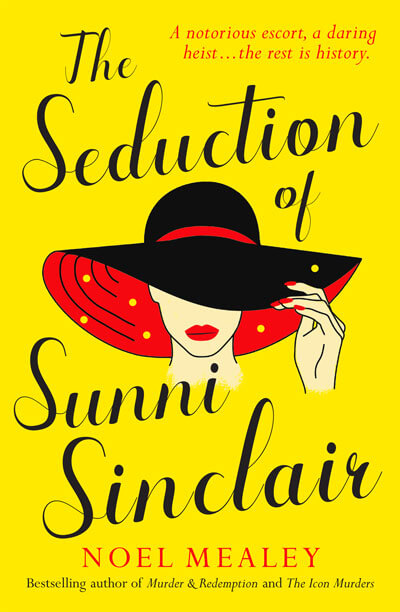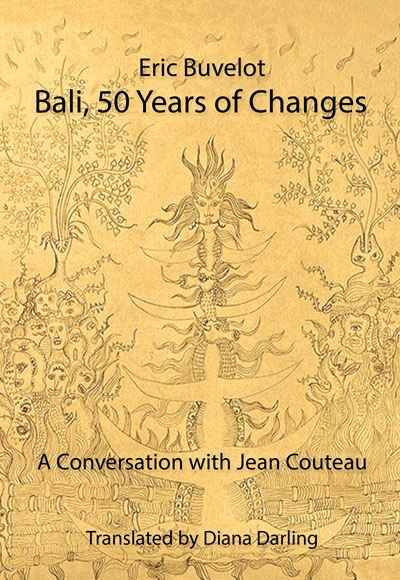
A Reviewer Howls in Sympathy with the Poet
Editor’s Note: This is Gemma White’s second collection with Interactive Press, the first being Furniture is Disappearing.
Gemma White dedicates this collection of poems to ‘the man with the Red Hand Files Tattoo.’ I too subscribe to the Red Hand Files, a series of personal letters written by the singer/songwriter Nick Cave, whose personal responses to fans’ questions about life and suffering are thus rendered public and poetic. Like clearly calls to like.

Like Nick Cave, Gemma White writes with honesty and eloquence which hits home. These poems operate in media res, where the writer addresses the reader and engages us in the midst of a flow of ideas and feelings which have begun prior to our arrival, a continuous discourse with that world.
The anguish and irritation of human experience is here, and also the intense sensory savouring of physical joy and sensuality. There are word games and verbal frolicking like bouts of low key release, between tensile spasms. It’s a compendium of lived experience located in our contemporary world, its familiarity enriched by White’s illumination of it.
The wild vagaries of life and the need to create personal equanimity within the extremes is documented in these poems, and along with the poet’s embracing of neurodivergent experience there is exuberant affirmation of the desire for human connection, which requires the healing of the frayed hopes and ideals we carry, and the reaching through past walls which our disillusionment erects around us.
The poems have no titles, and are numbered backwards from 50 to 1.
The first poem, Poem 50, evokes imagery of Celtic blessings, and human love and sensory fulfilment:
We start the fires
We bring the rain
We praise the sun
We lick every new frond
in our love of the infinite…We are here forever and
for just a moment combined
We awaken the skies
for we are sublime.
Colour is powerfully used in Poem 48 to illustrate the experience of managing emotional extremes associated with bipolar disorder. The bold ownership by the poet of her condition is shown in the assertive use of the possessive pronoun at the inception of the poem:
My madness is a burnt orange fox
Most of the time it is contained to its burrow
Occasionally it draws a crimson streak across life
Like a mandarin cloud at sunset
Its hues echo.
The importance of self-containment in the journey of navigating the maze of the world is evoked in White’s metaphor in Poem 39 of keeping herself ‘in a suitcase/ It’s small and suffocating/ but I need the ease of transportation.’
The desire for connection and community strives against the desire for concealment of what others may not understand. In Poem 46, the poet describes human beings as channels for the energy of love, which moves through us, enacting its purpose, while positively transforming us. The almost childlike language and untrammelled syntax shape the pure feeling of the meaning:
It is flying through the air
it’s looking for the perfect time
and specific place
it’s a ball of golden light
searching for the people
hunting for the moment
it might be finding you
or maybe the garbage man
only it knows and it’s not telling
but it will land somewhere soft
creating a bridge from one to the other
warmth to you friend it says
you are not alone
we’re in this together.
In Poem 42, White expresses longing for a place of safety, not only in creative expression in the form of words, but for love which can be expressed in safe spaces:
I dream of a day where I can walk
in the sunlight of your thoughts
to a place of ferns and mossMaybe someday they’ll remove the razor from my mouth
until then my words are cutting and sharp
It seems extraction is the only answer.
The extraction here is a word which suggests surgical removal, an extreme action to ease present suffering and prevent future unhappiness. What is to be extracted? The poet herself, or the suffering self from the world which is her context, the reality which causes her discomfort? Is it a temporary incident, a specific complicated relationship or the whole existential bind, the warp and weft, that she wants to exit?

In the closing stanza, the poet directly addresses a lover in the second person, a person removed from her, from whom she asks sanctuary and solace, to be free even temporarily of the pain of numbness:
You’re looking at me from the balcony of your thoughts
Your smoke screen hides an innocence
Please let me sleep in the shadow of your soul
So I can feel something again.
The poet also finds freedom, safety, and remedy in the act of writing, as she states in Poem 38:
There is something
Sacred and healing
That happens when I write
When I paint
When I create songs
Maybe I am closer to God
Maybe the bad things can’t find me here.
But sources of solace counterpoint the daily challenges of mundane life, which threaten us with both boredom and stress, and containers that do not contain or protect us from harm. Poem 33 asserts:
The voice inside your head
is not your friend
and if the goal is to create
you must escape yourself
you must become a god
so far above those whiny self-pitying monologues
no longer exist
they have been left behind
along with unflattering selfies
black skinny jeans that no longer fit
and sneakers that let the rain in.
I have recently learned about allostatic stress, and White’s Poem 31 is the most brilliant poetic rendition of it I have ever come across. Allostatic load is a psychological term which refers to the cumulative burden of chronic stress and life events. For neurodivergent individuals, this phenomenon of allostatic overload is a regular occurrence.
I can go to heaven or hell to meet angels and devils all in the same 24 hrs if my mind inflames me they give me tablets to calm the fires and I pray to all the angels and devils that I don’t become numb to the flames when my mind inflames me I think of how your beauty is surprising and creeps up on me seeping into me like a cooling ocean breeze stopping the fire from getting too hot and helping me stay in and of this world so that when the spirit burns I can recover and walk calmly by your side once more.
Here the block shape of the unsegmented stanza, the sustained metaphors of fire and burning, the apparently random spaces that signify abrupt line breaks and the ‘run on’ thoughts which shape the rapid fire bursts of lateral thinking, help characterize the high-end bipolar spectrum speech patterns.
Poem 26 showcases the challenge of managing emotional extremes which society labels a disorder, to reframe the condition in a more positive way. To not reduce it, but to express and comprehend its range, and the powers it confers on the sufferer. The wryness and irony of the last line encapsulates the frustration and resignation endured by those of us who must regulate ourselves and endure the mundane in order to remain productive, while infinitely preferring to soar and plummet if we could do so without inflicting or incurring damage. The paradox is succinctly expressed in the second stanza:
I have seen things no-one else has seen
heard things that ‘are not there’
my life has been poorer and richer for it.
The words of the marriage ceremony reversed intensify the impact of this image.
Poem 23 illustrates the empathy and sensitivity that can be felt by an experienced navigator of extremes towards another person who is experiencing difficulty and seeking advice. Calm and strong words, colloquial and clear cut, the opposite of ‘flipping the switch as if that is the key’:
I don’t have the answer for you but I’m here and I care
what I know from life is that things always change
Gradually then quickly again and again.
In Poem 7, we see further into the life wisdom the poet has learned:
How can we learn to live with one another
With full understanding of what it means
without abdicating our own selves.
The poet expresses reverence and self-restraint:
My mouth hungers for revenge
but now I wait for his truth
Knowing that there is more to it
seeking to appreciate
A different point of view.
One of the dangers of suffering from what society terms ‘a disorder’ is that those diagnosed with a ‘condition’ can feel unjustly stigmatized, and in that isolation can hit out in anger at others, who they perceive as ‘othering’ them. Empathy, connection, seeking to respect and understand others, inclusiveness are all remedies for this.
The ‘musical’ poems 20 and 13 show the singing of songs, the finding of tunes, as an image of the attempts and the desire of all of us to ‘sing in tune’, to find harmonious relationship with the world around us.
The rhythmic iterations of ‘the day I sang out of tune’ in Poem 20 build the first four stanzas to the crescendo in the second four. The act of performing in public while simultaneously overcoming the tendency to self-sabotage is perfectly expressed:
my voice, not used to this, broke several times
I thought Jesus this is a disaster
but I couldn’t stop singing, singing with all my verve
with all my courage, I sang out of tune
when the song was over, I slunk off the stage
out of tune with the world.
The cognitive dissonance clearly felt by the poet, is shown in the other side of this longed-for consonance, this human desire to conform, in the firm stance for individualism expressed in Poem 13:
there is a song for this that they will make you sing
but please try not to join in the chorus
for that will make you one of them.
My favourite poem in this bejewelled array is Poem 8. It’s like a painting, with colour and texture and sound. And I join the poet ‘in silhouette/ howling in sympathy.’
– Devika Brendon, Rochford Review
IP (Interactive Publications Pty Ltd)
David is a multi-award winning author and digital artist living in Brisbane, Australia. He's also CEO / Publisher at IP (Interactive Publications Pty Ltd), Australia's most innovative independent publisher











Comments (0)